An old battery is now hazardous waste sitting in your workshop. You know you can't just throw it away, but the rules seem confusing, and a mistake could be dangerous or illegal.
Never put scooter batteries in the regular trash. Take them to an auto parts store, your local recycling center, or a designated hazardous waste facility. This is both safe and, in most places, legally required.
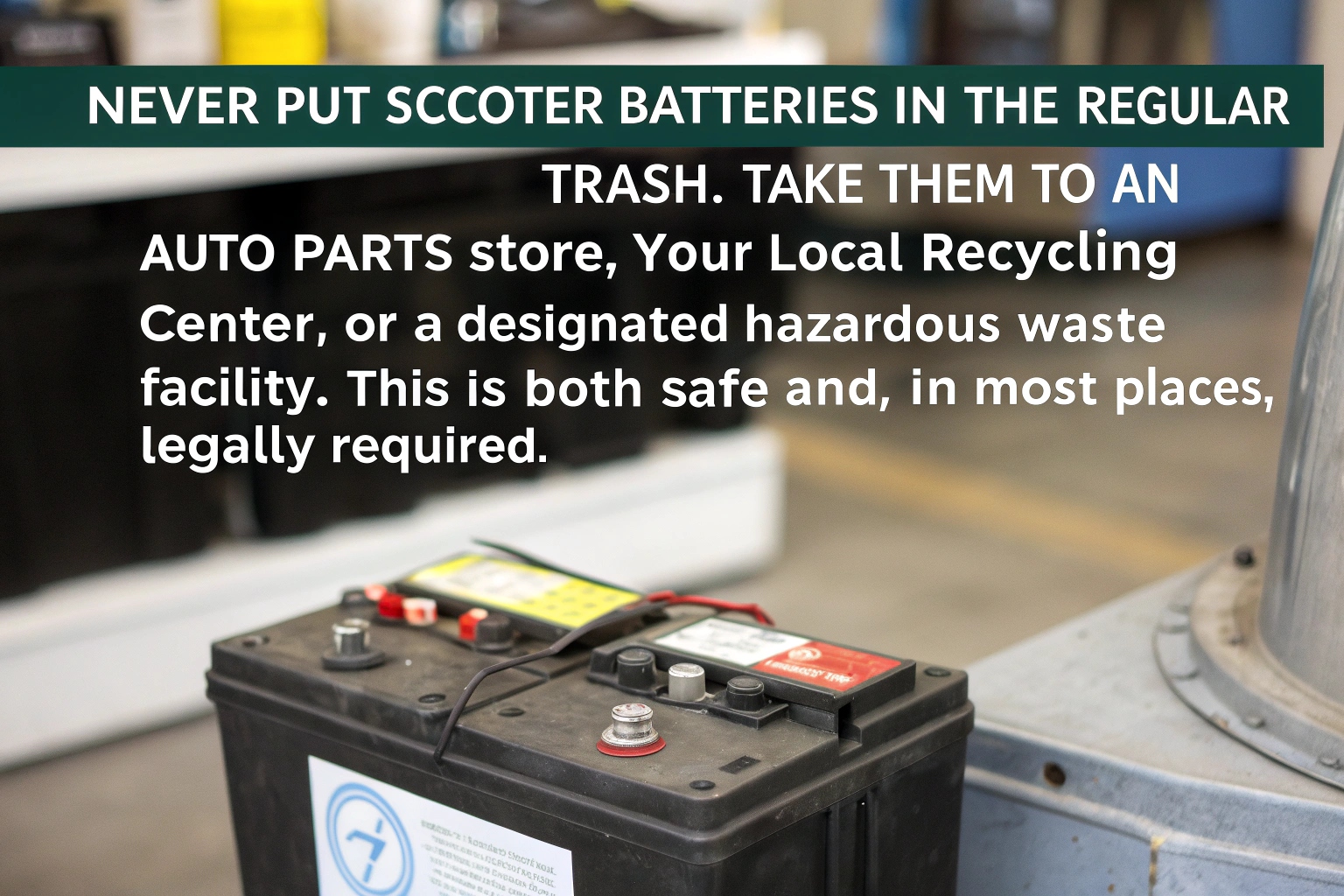
In my factory, we see a battery's entire life cycle, from new cells to old returns. Proper disposal isn't just an afterthought; it's a critical part of being a responsible manufacturer and distributor. Ignoring these rules creates real dangers and can damage your business's reputation. The good news is that the process is much simpler than most people think. I'm going to show you the safe and legal way to handle old batteries, no matter where you are in the world.
Where can users drop off old or dead batteries?
You have a heavy, dead battery and no idea where to take it. The thought of driving around looking for a drop-off point is a hassle you don't need.
Most auto parts stores and home improvement retailers will take old lead-acid batteries for free. Your local government's household hazardous waste (HHW) facility will accept both lead-acid and lithium types.
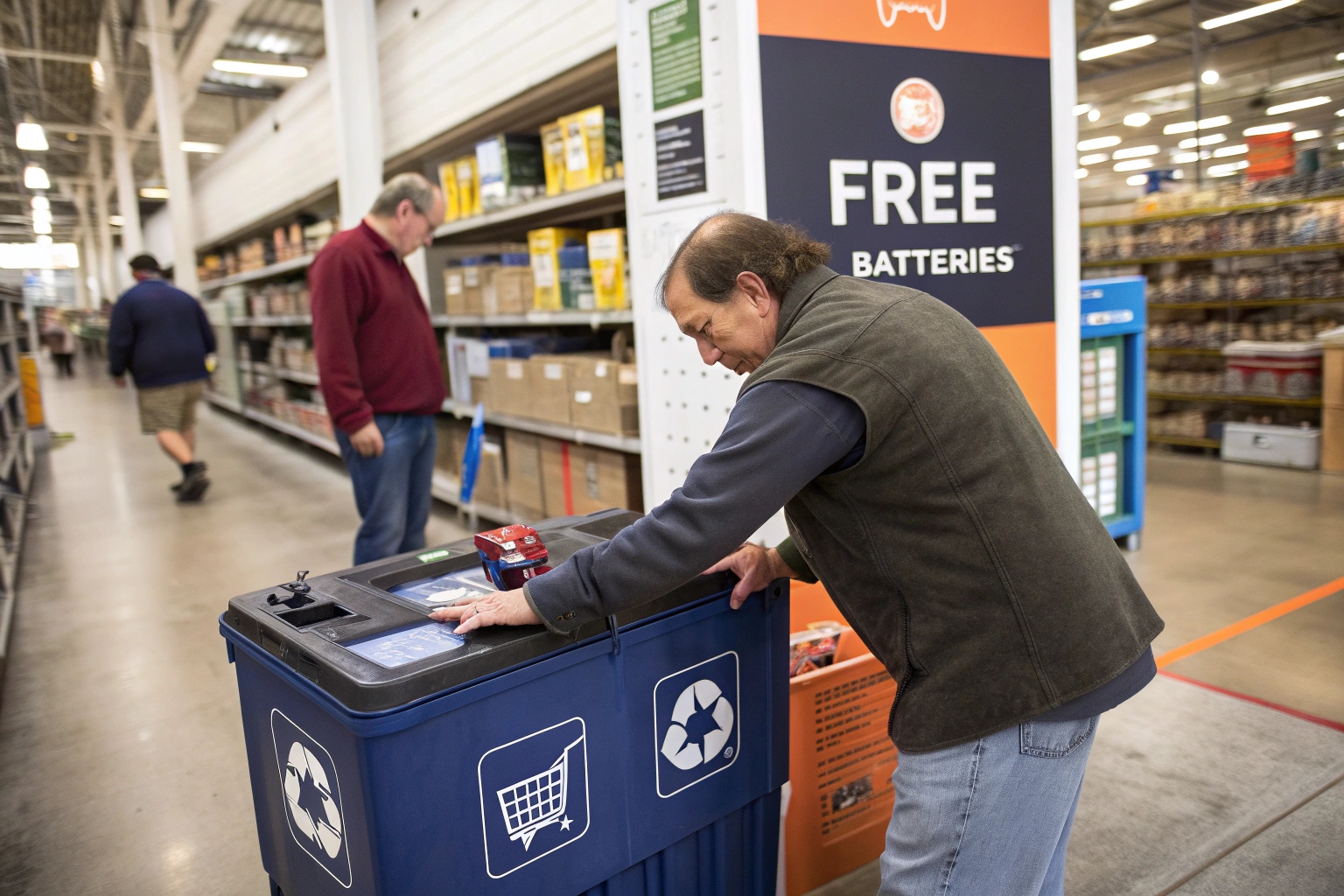
When we advise our global distributors, we tell them to create a simple disposal guide for their customers. The options are surprisingly consistent across different countries. You don't need to be an expert; you just need to know the three main channels that are almost always available.
- Retail Take-Back Programs: This is the easiest option. Many large retailers that sell vehicle batteries are required by law to accept old ones for recycling. In the U.S., these "core charge" laws are common. In the UK and EU, the WEEE regulations mean sellers must provide a way for customers to return old electronic products, including batteries.
- Municipal Recycling Centers: Your local city or county waste management authority will have a specific location for hazardous waste. This is the right place for any battery type, especially if you have several to dispose of. They are set up to handle these materials safely.
- Specialized Battery Recyclers: Companies like Call2Recycle in North America or EcoBatt in Australia have thousands of drop-off bins in retail stores. These are great for smaller lithium batteries, but your heavy-duty scooter batteries should go to a proper auto parts store or municipal site.
Can lithium batteries be recycled or reused?
Lithium batteries are expensive, and throwing one away feels wasteful. You wonder if a "dead" battery still has value or could be repaired instead of replaced.
Yes, nearly all the valuable metals in a lithium battery can be recovered through recycling. A battery that seems dead can often be repaired by replacing only the failed cells inside, saving money and reducing waste.
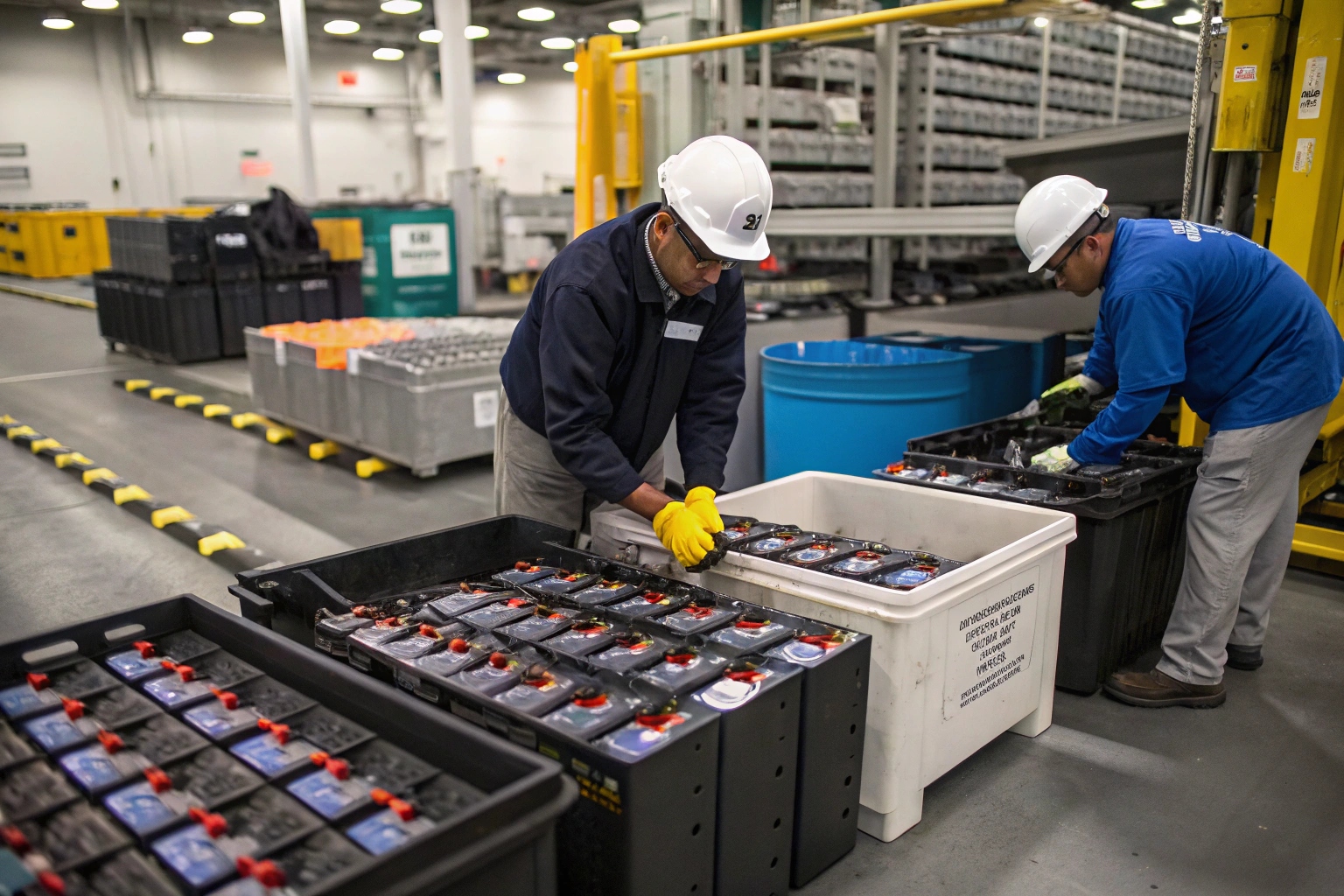
This is a trick that can save your business a lot of money. At my factory, we know that a batterie au lithium is just a case full of smaller, individual cells. When a pack "dies," it's rarely because all the cells have failed. Usually, just one or two bad cells have brought the whole pack's voltage down. A skilled technician can open the pack, use a multimeter to find the weak cells, and replace only those specific ones. This is much cheaper than buying a completely new battery pack.
If the battery truly is at the end of its life, it is still very valuable. Recycling isn't just about being green; it's a business.
- Recycling: High-tech facilities use processes to extract and purify the cobalt, nickel, and lithium. These recycled metals are then sold back to manufacturers like us to make new batteries. This "closed-loop" system is becoming a huge part of our supply chain.
- Second-Life Applications: A scooter battery that can no longer run a vehicle might still hold 70% of its original charge. This is more than enough to power less demanding things. We've seen old packs repurposed to power solar street lights, emergency backup systems, and warehouse equipment.
What are the risks of improper disposal?
It's easy to hide an old battery in a dumpster. However, this shortcut can lead to fires, environmental damage, and legal fines. The risks are much bigger than you think.
Throwing batteries in the trash is a major cause of garbage truck and recycling facility fires. The batteries can short-circuit and explode when crushed, and their heavy metals can leak and poison groundwater.
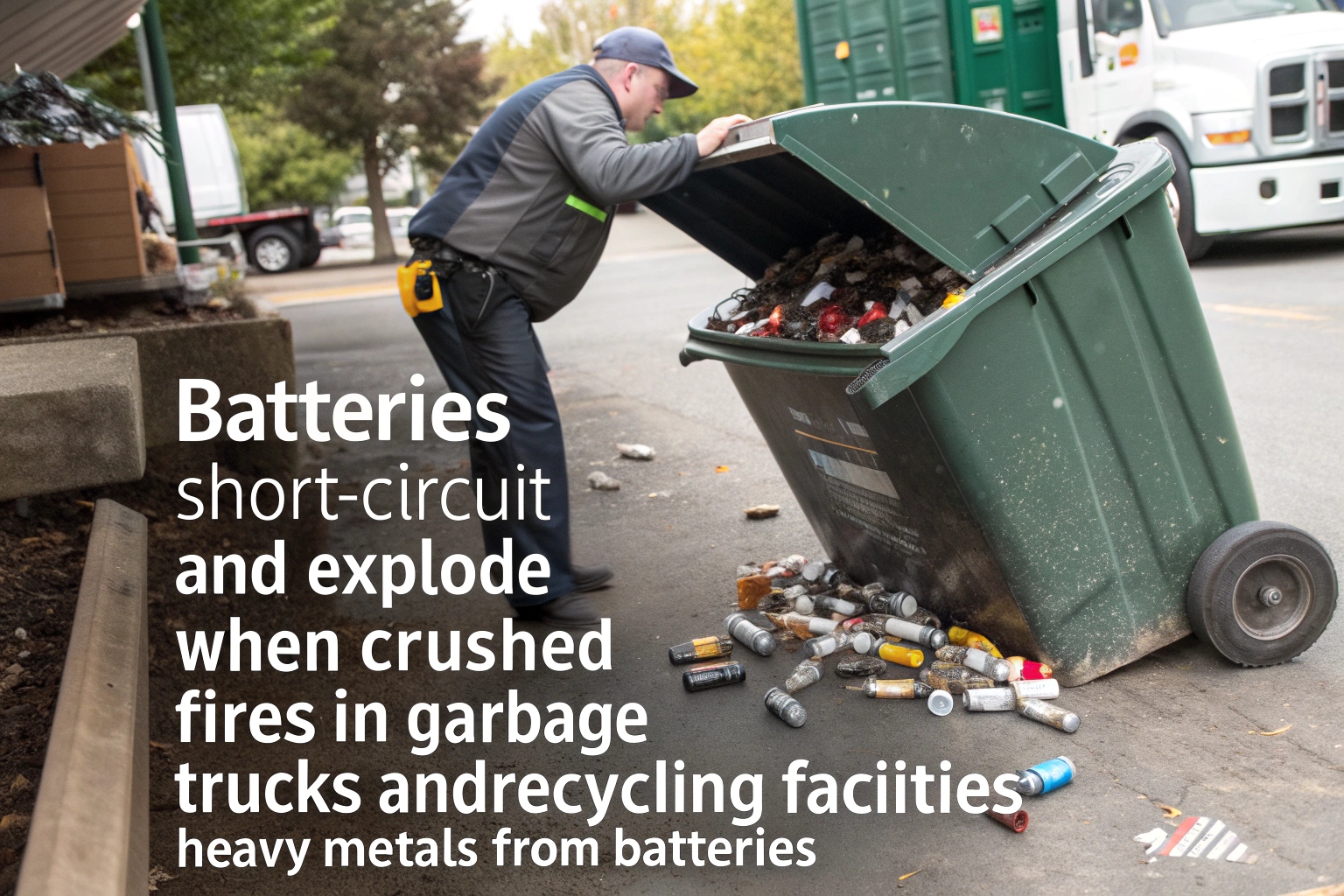
When I hear stories about fires at waste facilities, I know that an improperly disposed battery is often the cause. This is a huge risk for communities and a liability for any business involved. As a manufacturer, we take this very seriously, because a fire can sometimes be traced back to the original brand. The two main battery types pose different, but equally serious, threats.
| Hazard | Lead-Acid Battery (SLA) | Batterie lithium-ion |
|---|---|---|
| Fire/Explosion | Low risk, but can spark and create hydrogen gas if shorted. | High Risk. Prone to "thermal runaway" (unstoppable fire) when crushed or punctured. |
| Toxic Leaks | High Risk. Leaks corrosive sulfuric acid and toxic lead. | Leaks flammable electrolyte and heavy metals like cobalt and manganese. |
| Environmental Harm | Lead is a powerful neurotoxin that contaminates soil and water. | Heavy metals pollute groundwater. The fires release toxic fumes into the air. |
As a distributor, teaching your customers how to dispose of batteries properly is not just good service; it protects your business from being linked to these dangerous and expensive incidents.
How to comply with environmental laws for battery export/import?
You are placing an international order and see extra fees for battery handling. The paperwork is complex, and you are worried your shipment could be delayed or seized by customs.
To comply, your supplier must use UN-certified packaging, correctly label all boxes with Class 9 hazardous goods warnings, and provide the right safety documents (like UN38.3 test reports). This is the supplier's responsibility, but you must ensure they are compliant.
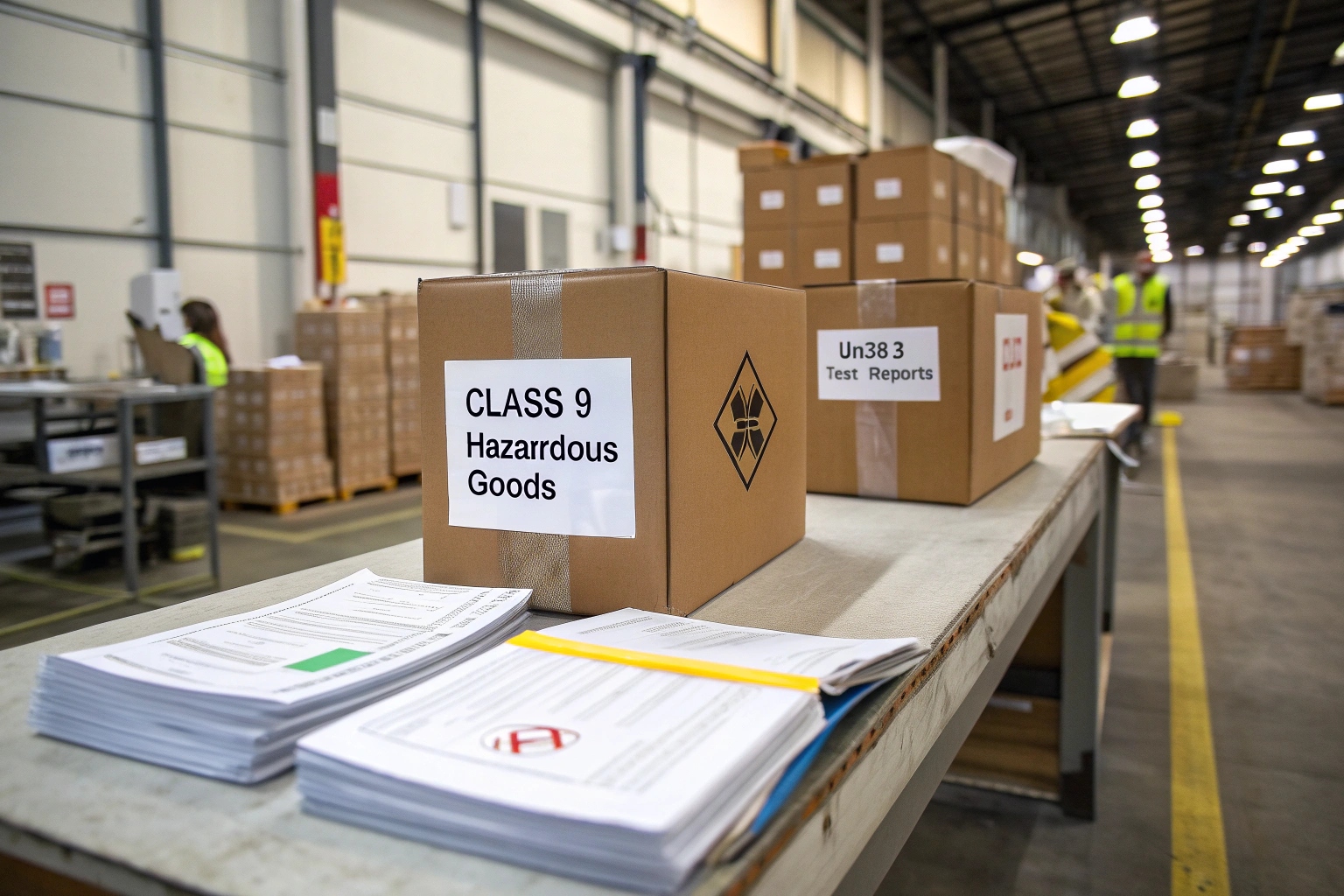
This is one of the most critical parts of my job as an exporter. Shipping batteries, especially lithium, is heavily regulated. You, the importer, do not need to be an expert on the laws, but you must choose a factory partner who is. A cheap supplier who cuts corners on shipping regulations is putting your entire investment at risk. When we prepare a shipment for a B2B client, we manage a long checklist of legal requirements.
Here is what compliant shipping involves:
- Correct Classification: We identify the battery with the right UN code. For example, a loose lithium-ion battery is UN3480. A non-spillable lead-acid battery has its own classification.
- Documentation: We provide the Material Safety Data Sheet (MSDS) and the UN38.3 test report, which proves the battery has passed safety tests for transport. Without this, no airline or shipping line will touch it.
- Packaging and Labeling: Batteries must be shipped in special, strong boxes. For air freight, lithium batteries must be at a low state of charge (under 30%). Every box must have the correct Class 9 hazard diamond label.
- International Treaties: For bulk shipments of used batteries, we must follow rules like the Basel Convention, which governs how hazardous waste moves across borders. The new EU Battery Regulation is adding even more "digital passport" rules that we help our European clients navigate.
When you get a quote, ask your potential supplier how they handle battery shipping compliance. A good partner will have clear, confident answers. A vague or dismissive response is a major red flag.
Conclusion
Proper battery disposal is simple: use official retail or city recycling programs. This protects the environment, prevents dangerous fires, and is legally required. For importers, ensuring your factory partner follows all shipping laws is essential for a safe, successful business.

